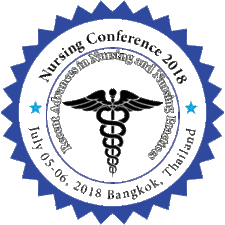
Chutima Meechamnan
Chiang Mai University, Thailand
Title: Progressive Muscle Relaxation on Life-Altering Symptoms in Persons with Hepatocellular Carcinoma Undergoing Transarterial Chemoembolization Therapy.
Biography
Biography: Chutima Meechamnan
Abstract
In Thailand, hepatocellular carcinoma (HCC) ranks as number one cancer in men and fourth in women. It is also the major cause of death in men and ranks second in women. Transarterial Chemoembolization (TACE) is the recommended treatment for HCC patients, resulting in delayed tumor progression and prolonged survival. However, TACE leads to several life-altering symptoms including pain, fever, and nausea and/or vomiting. Current knowledge on integrative therapies demonstrates that some techniques such as the progressive muscle relaxation might assist with pain management. The study used a one-group pre- and post- test design. Participants were 30 HCC patients who underwent first TACE attending a university hospital in Thailand. They received PMR training and provided a PMR CD for home practice. They were educated to use PMR as needed for symptom management for six weeks at home, kept a log of symptom rating book each time PMR was used, recorded the time of day and made immediate pre- and –post treatment recording of the symptoms severity on a 0-10 scale. The two most life-altering symptoms after TACE were pain, which can be classified as upper back pain, and lower back pain. The changes in symptom ratings from pre- to post- PMR were significant. Mean upper back pain scores decreased from 4.33 (SD = 0.45) pre-treatment to 2.73 (SD = 0.33) post-treatment (Z=-3.92, p<0.001), and mean lower back pain scores decreased from 4.71 (SD = 0.82) pre-treatment to 3.80 (SD = 0.60) post-treatment (Z=-3.70, p<0.001).

